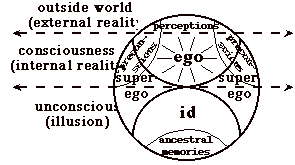Years back we had a cat who developed partial paralysis of his back legs. The vet ran screens for infection, and x-rayed to look for signs of spinal compression, which he thought the most likely cause, but found nothing. He was a very experienced vet, however, who said if it was a compression injury there was a reasonable chance it would resolve itself. Which it did, after about a month. After two months the cat was back to normal.
Now, if that cat had been human he would likely have ended up in the care of someone like Suzanne O'Sullivan. She would have delved into his emotional life, discovered that he resented our feeding him from a plastic bowl when we were eating off china (in turn leading to feelings of inadequacy and rejection). She would have told us to change his dinnerware and hey presto!, when he recovered that would be another one chalked up in the win column for psychosomatic illness.
How many of these people with psychosomatic conditions are actually suffering from transient neurological disruptions, the result of viral infections or minor physical injuries?


